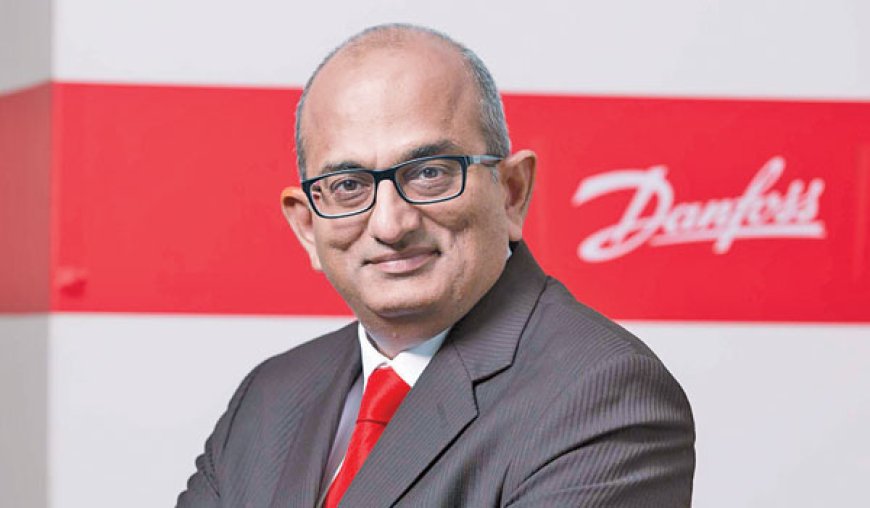The evolving HVAC landscape presents exciting opportunities for innovation and growth.

Ravichandran Purushothaman,
How is the demand emerging currently for an efficient HVAC system?
The demand for efficient HVAC systems in India is driven by a growing emphasis on sustainability, energy conservation, and occupant comfort. According to a study by McKinsey, buildings account for nearly 40% of global energy consumption, highlighting the critical role of HVAC systems in reducing energy usage and carbon emissions. In response to these emerging needs, Danfoss offers a range of innovative solutions designed to maximize energy efficiency and optimize performance. For instance, our variable speed drives can help reduce energy consumption by up to 50% in HVAC applications, contributing to significant cost savings and environmental benefits.
How is sustainability gaining traction in your HVAC systems? What are the latest innovations in this regard?
Sustainability is at the core of Danfoss's HVAC innovations, driving us to develop solutions that minimize environmental impact while delivering superior performance. Our commitment to sustainability is exemplified by initiatives such as the Danfoss Climate Challenge, where we aim to reduce our carbon footprint by 50% by 2030. To achieve this goal, we have introduced innovative technologies such as CO2 refrigeration systems, which have 90% lower global warming potential compared to traditional refrigerants. Additionally, our digitalization solutions enable precise control and optimization of HVAC systems, further enhancing energy efficiency and sustainability.
How do you visualize the new opportunities for HVAC systems?
The evolving HVAC landscape presents exciting opportunities for innovation and growth, particularly in areas such as smart buildings, renewable energy integration, and indoor air quality management. Danfoss offers a range of smart HVAC solutions that leverage IoT technology to optimize energy usage, improve comfort, and enhance operational efficiency. By capitalizing on these new opportunities, we aim to drive sustainable growth and create value for our customers and stakeholders.
What are your strategies and approach to capitalize on these opportunities?
Danfoss's strategy to capitalize on emerging opportunities in the HVAC market revolves around innovation, collaboration, and customer-centricity. Leveraging our global expertise and R&D capabilities, we continuously develop cutting-edge solutions that address evolving market needs and trends. For example, our collaboration with industry partners and research institutions has led to the development of novel heat pump technologies that utilize renewable energy sources such as solar and geothermal power. By forging strategic alliances and focusing on customer success, we aim to solidify our position as a preferred partner for HVAC solutions worldwide.
What is your outlook on HVAC industry? What will be trending in future?
Looking ahead, the HVAC industry is poised for continued growth and innovation, driven by factors such as urbanization, digitalization, and sustainability. According to a report by Allied Market Research, the global HVAC market is expected to reach $241.77 billion by 2027, with a significant portion of this growth attributed to demand from emerging markets such as India and China. Future trends such as electrification, decarbonization, and modularization will reshape the industry landscape, presenting both challenges and opportunities for companies like Danfoss. With our unwavering commitment to innovation and sustainability, we are confident in our ability to navigate these trends and lead the industry towards a greener, smarter future.







